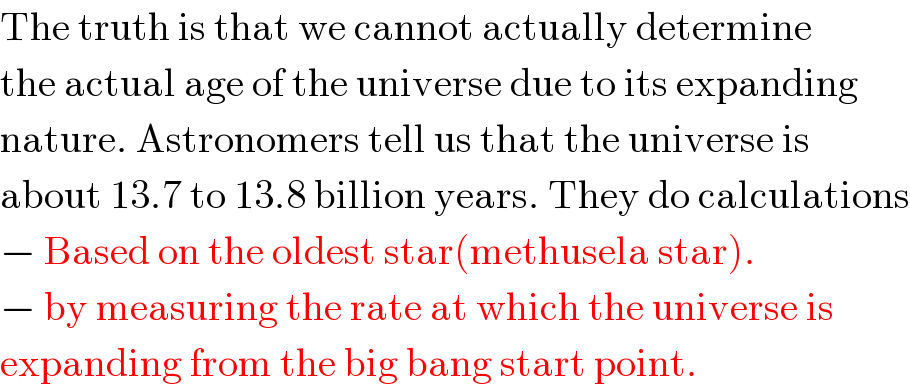
Question and Answers Forum
Previous in Matrices and Determinants Next in Matrices and Determinants
Question Number 97885 by M±th+et+s last updated on 10/Jun/20
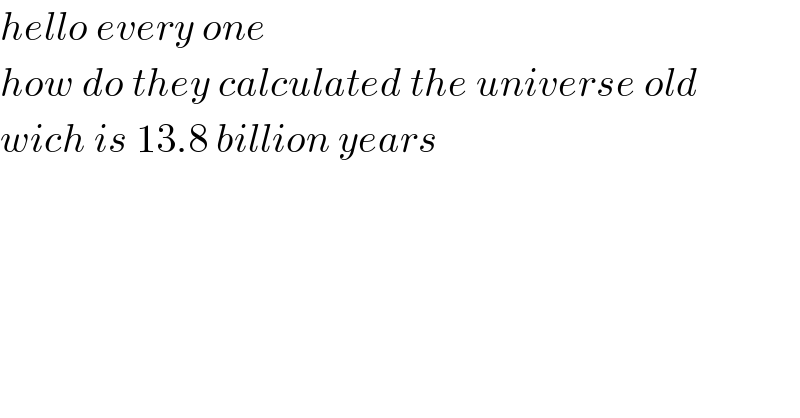
Commented by EmericGent last updated on 10/Jun/20
One way is use the density in function of time and see when the density reach Planck's limit
Commented by M±th+et+s last updated on 10/Jun/20

Answered by smridha last updated on 10/Jun/20
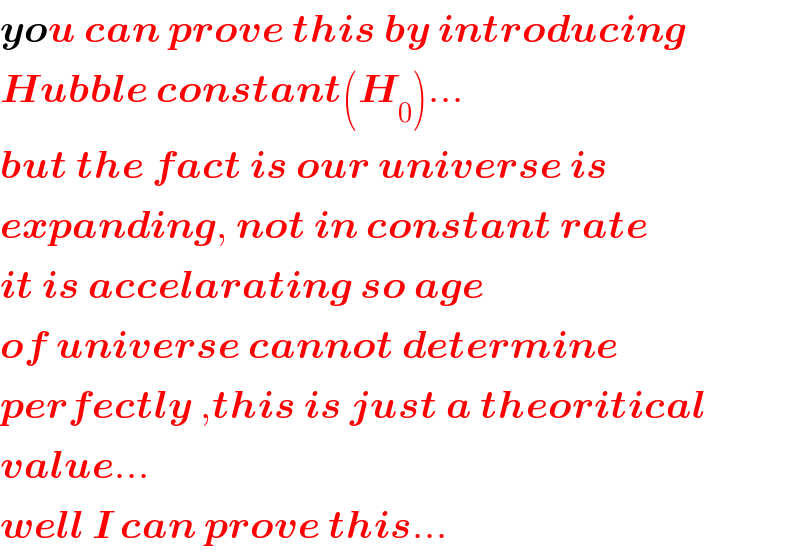
Commented by M±th+et+s last updated on 10/Jun/20
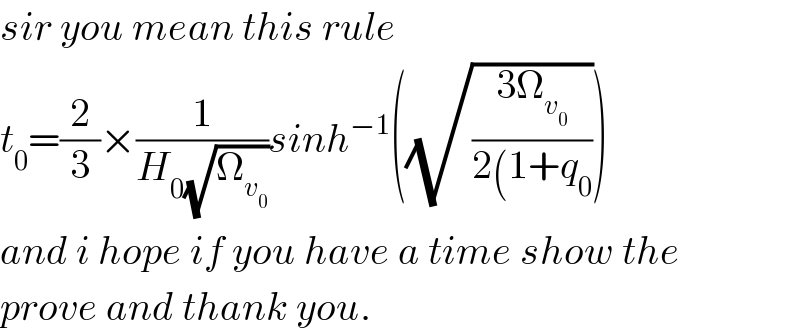
Commented by smridha last updated on 10/Jun/20
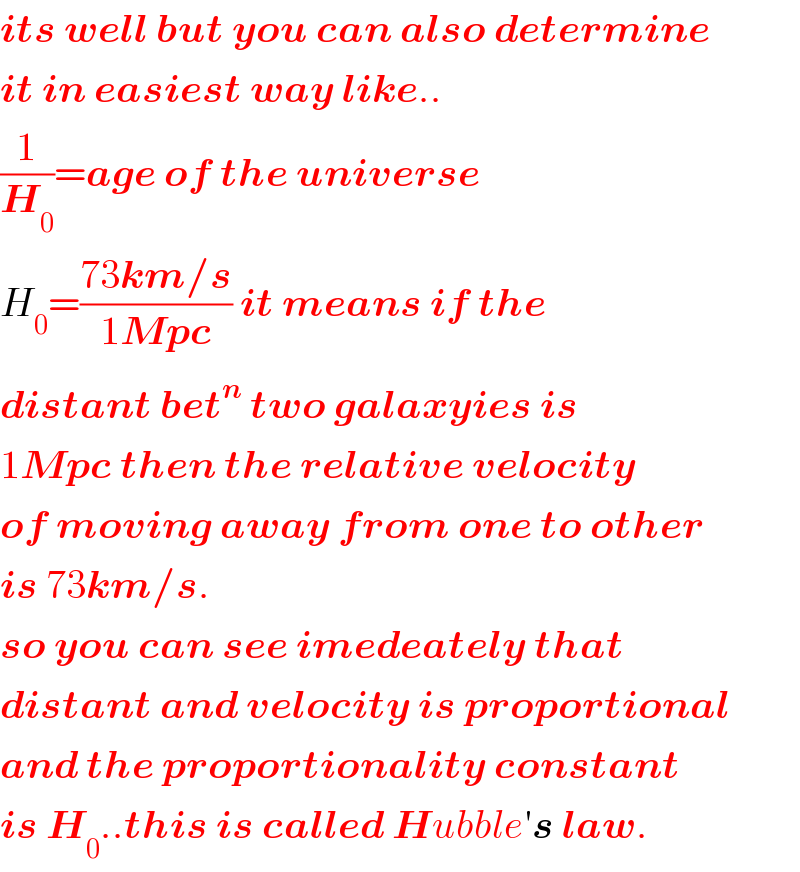
Commented by smridha last updated on 10/Jun/20

Commented by M±th+et+s last updated on 10/Jun/20

Answered by Rio Michael last updated on 10/Jun/20
